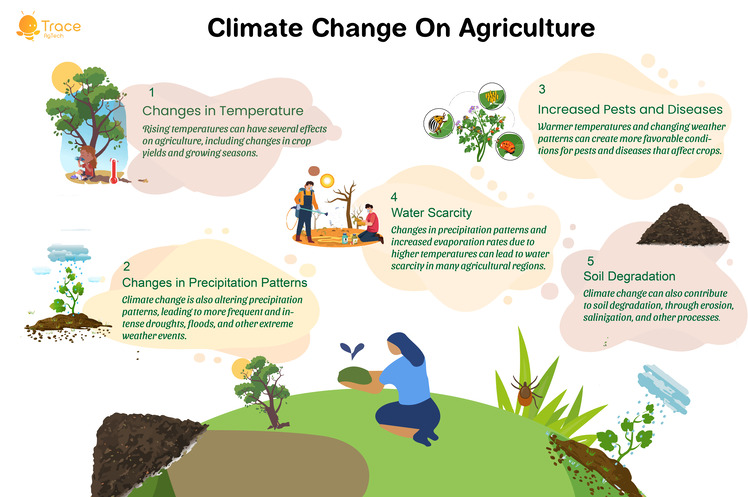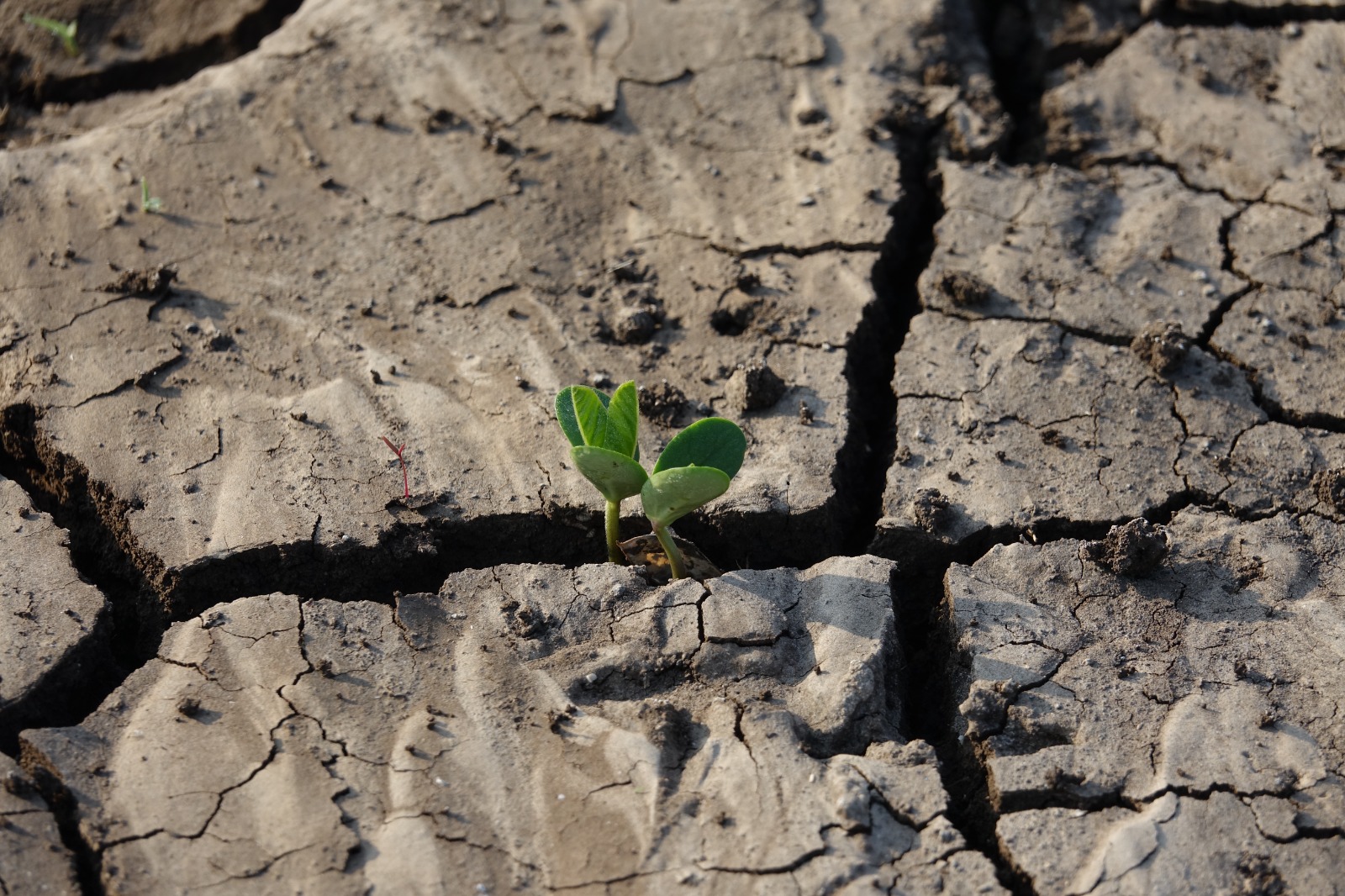The Impact of Climate Change on Agriculture
Climate change is one of the most pressing issues of our time, with far-reaching impacts on ecosystems, economies, and human livelihoods. One of the sectors most affected by climate change is agriculture. Agriculture is not only a major contributor to greenhouse gas emissions but is also highly vulnerable to the effects of climate change. In this blog, we will explore the impact of such change on agriculture, the challenges it poses, and some potential solutions.
Introduction to Climate Change and Agriculture
Climate change refers to long-term changes in temperature, precipitation, and other atmospheric conditions that result from human activities, such as the burning of fossil fuels and deforestation. These changes have significant implications for agriculture, which relies heavily on stable environmental conditions to produce food, fiber, and other products.
Effects of Climate Change on Agriculture
Changes in Temperature
Rising temperatures can have several effects on agriculture, including changes in crop yields and growing seasons. Some crops may benefit from warmer temperatures, while others may suffer. Extreme heat can also stress crops, leading to lower yields and reduced quality.
Changes in Precipitation Patterns
Climate change is also altering precipitation patterns, leading to more frequent and intense droughts, floods, and other extreme weather events. These events can damage crops, reduce yields, and disrupt food supply chains.
Increased Pests and Diseases
Warmer temperatures and changing weather patterns can create more favorable conditions for pests and diseases that affect crops. This can lead to increased use of pesticides and other control measures, which can have negative environmental and health impacts.
Water Scarcity
Changes in precipitation patterns and increased evaporation rates due to higher temperatures can lead to water scarcity in many agricultural regions. This can have serious consequences for irrigation, livestock watering, and other agricultural practices.
Soil Degradation
Climate change can also contribute to soil degradation, through erosion, salinization, and other processes. Degraded soils are less productive and can require more inputs, such as fertilizers, to maintain yields.

Challenges for Agriculture
Food Security
Climate change poses a significant threat to global food security, as it can reduce crop yields, disrupt food supply chains, and increase food prices. This can have serious consequences for vulnerable populations, particularly in developing countries.
Economic Impacts
The impacts of climate change on agriculture can have far-reaching economic consequences, affecting farmers, food processors, retailers, and consumers. For example, crop failures can lead to lost income for farmers and higher food prices for consumers.
Environmental Sustainability
Climate change can also undermine the environmental sustainability of agriculture, through increased greenhouse gas emissions, deforestation, and other impacts. This can further exacerbate climate change and threaten biodiversity and ecosystem health.
Solutions to Mitigate the Impact
Sustainable Agriculture Practices
Adopting sustainable agriculture practices, such as agroforestry, crop rotation, and integrated pest management, can help mitigate the impact of climate change on agriculture. These practices can improve soil health, water retention, and biodiversity, making farms more resilient to climate change.
Climate-Smart Technologies
Investing in climate-smart technologies, such as drought-resistant crops, precision agriculture, and efficient irrigation systems, can also help farmers adapt to changing environmental conditions and reduce their carbon footprint.
Policy and Governance
Governments can play a crucial role in mitigating the impact of climate change on agriculture by implementing policies that support sustainable agriculture practices, promote climate-smart technologies, and provide support to farmers.
Conclusion
In conclusion, climate change poses a serious threat to agriculture, with potentially far-reaching consequences for food security, economic stability, and environmental sustainability. Addressing these challenges will require a coordinated effort from governments, farmers, researchers, and other stakeholders to develop and implement strategies that promote sustainable and resilient agriculture in a changing climate.


Any comments?